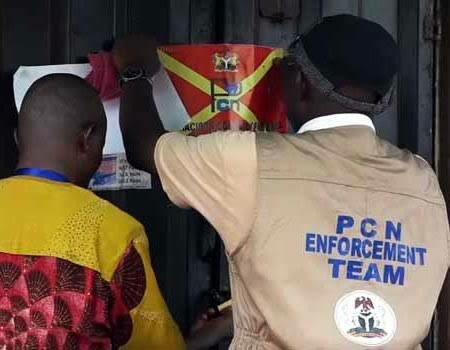Pharmacy Council of Nigeria (PCN) has intensified its crackdown on illegal drug outlets, shutting down more than 50,000 premises nationwide as part of its ongoing enforcement drive.
PCN registrar Ibrahim Ahmed disclosed this yesterday at the National Pharmaceutical Inspectors’ Workshop opening in Nasarawa State, themed “Inspecting for Excellence: Best Practices in Pharmaceutical Inspection as a Key Driver of Public Health Safety in Nigeria. “
He said the council is set to shut down the Idumota drug market in Lagos and the Onitsha Headbridge market in Anambra State, which it says operate outside acceptable safety and regulatory standards.
Pharm. Ahmed said the training was designed to strengthen inspectors’ capacity, harmonise inspection procedures nationwide, and align operations with globally accepted standards.
“We are responsible for ensuring that whatever the pharmaceutical inspectors do nationwide is uniform. The World Health Organisation’s benchmarkers also assess our systems to ensure these standards meet global best practices,” Ahmed stated.
He explained that the PCN Act empowers the council to inspect, register, approve, and license all premises where medicines are manufactured, imported, exported, stored, sold, or dispensed.
He noted that before the 2022 Act, regulatory gaps allowed patent and proprietary medicine vendors to operate without consistent oversight, fuelling the proliferation of fake and substandard medicines.
According to him, 2,000 illegal premises have been closed in 2025 alone. He added that the council had already closed the Sabon Gari drug market in Kano and relocated traders to regulated facilities. Similar plans are underway in Lagos and Anambra with the construction of Coordinated Wholesale Centres.
Pharm. Ahmed also emphasised the PCN’s adoption of a Quality Management System (QMS) to ensure inspection consistency and maintain Nigeria’s WHO Global Benchmarking Tool Level 3 status, which signifies a well-functioning, stable, and integrated regulatory system.
“You are not just checking compliance; you are enforcing quality. You are strengthening the very systems that uphold our profession,” he told inspectors.
The chairperson of the PCN Governing Council, Pharm Wosilat Giwa, urged state Directors of Pharmaceutical Services, PSN chairmen, and community pharmacists to strengthen collaboration and proactively address local enforcement issues.
She warned inspectors to uphold the highest ethical standards and resist any form of compromise.
“The fight against counterfeit and substandard medicines is a national priority, and it is a battle we can only win with a steadfast and incorruptible team,” she said.
Permanent Secretary of the Federal Ministry of Health and Social Welfare, Mrs Daju Kachollom, represented by the Director Pharmaceutical Services Division, Department of Food and Drug at the ministry, Mrs Talatu Kasim, praised inspectors as “frontline guardians of public health,” noting that pharmaceutical inspection is central to ensuring the quality, safety, and efficacy of medicines in Nigeria.
The workshop chairman, Dr. Uzo Uwaga, highlighted emerging challenges facing inspectors, including the growth of online drug sales, diversion of controlled substances, political interference, and weak inter-agency collaboration.
He urged inspectors to act with integrity, document enforcement activities, and build stronger partnerships with NAFDAC, NDLEA, Customs, and state health ministries.
The workshop brought together over 130 PCN pharmacists, directors of pharmaceutical services from the 36 states and the FCT, state PSN chairmen, and representatives of the Association of Community Pharmacists of Nigeria.











